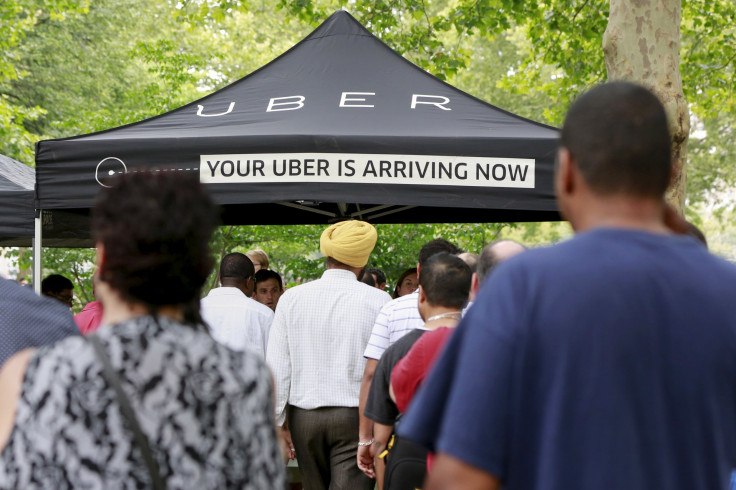How To Make It In The Gig Economy: 4 Tips For Freelancers

The informal motto of the on-demand economy has a nice ring to it: “Be your own boss.” But if you want to scrape together a living by driving for Uber, delivering groceries for Instacart or buying rich people coffee at Postmates, the struggle can make Sisyphus’ gig seem cushy. Working as an independent contractor -- as opposed to being an employee -- puts you at a significant disadvantage when the tax man comes calling. You’re also likely to miss out on more affordable health care coverage. But if a few whiffs of the gig economy’s intoxicating aroma has you hooked, here are some tips.
1. Make Sure You’re Not “Misclassified”
Misclassification runs rampant in American business. To save money, some companies classify their workers as independent contractors even though they function as employees. Simply put, unless you’re being showered with cash specifically because of your ability to work independently, it’s better in the long run to be an employee. Among other things, you’re able to earn overtime pay, collect unemployment insurance if you lose the job and not got screwed on taxes (more on that later). If you’re not able to work full-time, don’t worry. You can still be an employee and work part-time. Before getting hired, it’s worth asking if you can be an employee.
Of course, the boss might just say no. In that case, if you’re stuck as an independent contractor but feel like you’re an employee, it may be worth filing a complaint with your state’s labor department. State laws vary on the topic and they aren’t always fully enforced, but they generally tend to favor workers. The U.S. Department of Labor even went on record this summer saying “most workers as employees.” You shouldn’t get penalized at work for filing a complaint. If your boss retaliates, he’s in violation of federal law.
2. Get Healthcare
In the United States, health insurance is famously tied to employment. Not all is lost if you’re a freelancer, though. If you’re younger than 26, thanks to the Affordable Care Act, you can stay on the health insurance policy of a parent. That applies even if you’re financially independent or married. It’s likely the most cost-effective option.
If you’re 26 or older, then you’ll have to buy insurance on your own. For coverage starting in 2016, open enrollment doesn’t begin until November 1. Before then, you can do some research into the different policies available in your state -- this nifty website, Healthcare.gov, will connect you. It all depends on what sort of plan you’re looking for, but if you’re healthy and looking to save some money, consider a high-deductible plan with low premiums. In insurance-speak, that’s known as a “bronze plan.” Basically, you want to avoid paying for coverage you’re not using all that much.
A good tool for browsing insurance plans tailored for independent contractors is the Freelancers Union website. Despite the group’s title, it’s not a union in the traditional sense; it doesn’t do any bargaining or sign contracts on behalf of members. The Freelancers Union actually used to offer its own plan in New York for union members, but that became financially impossible under the Affordable Care Act.
3. Keep Track Of Your Business Expenses
It’s critically important to keep track of all your work-related expenses. If you’re driving for Lyft, then hold on to the receipts you get from gas stations and car washes; if you’re a Postmates courier, do the same for all the buses and subways you take; if you’re working from home, keep track of how much you spend on phone and internet. All of this will come in handy during your annual tax return, since you can deduct all these as business expenses. If you’re unsure that something counts as such an expense, keep track of it anyway and decide later. It’s better to have too many records than too few.
4. Pay Your Taxes--Four Times A Year
People are supposed to pay taxes as they earn income. If you’re employed, then your boss effectively does this for you, deducting taxes from your paychecks. But if you’re an independent contractor, you need to do it on your own -- or you could be charged penalties and interest to the IRS when you file your tax return in April. The government has a timetable for these so-called “estimated tax” obligations, with due dates four times a year, and you can file electronically. It’s tempting to think you can just settle your tab in April, but it’s not worth it. If you owe Uncle Sam $1,000 or more -- and if you’re having anything resembling success as a freelancer, you will -- then you’ll be saddled with extra debt for not paying on time.
Filing taxes is tricky enough for those who aren’t self-employed. And tax preparation software like Turbo Tax can make the process easier. But depending on your financial means, it may be worth simply paying for a real-live human accountant to help sort through all this.
“It depends if people understand what they’re reading,” says Jonathan Medows, a New York City-based CPA who works with freelancers. But if you’re having trouble making sense of the sort of questions the software asks, he says, get an accountant.
Overall, Medows says, “it’s important to take yourself seriously as a business.” Making the right moves over taxes and healthcare -- not to mention, making sure your boss follows labor laws -- can save you headaches and cash.
© Copyright IBTimes 2025. All rights reserved.






















